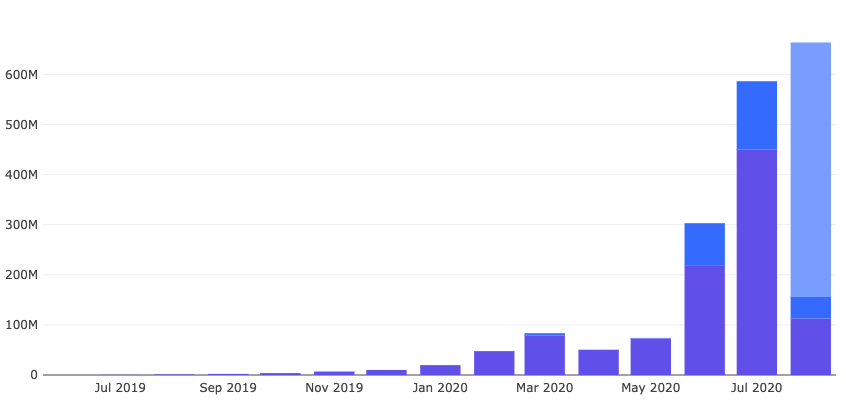
While my time investing in crypto and previously playing poker has gotten me used to experiencing large daily personal net worth volatility, it's never a pleasant experience
Short thread (by my standards...) with some ramblings that help me get through it 👇
Short thread (by my standards...) with some ramblings that help me get through it 👇
1/10 Imo, some DeFi projects represent 10-1000x upside opportunities
Obviously, like all of crypto, it is extremely risky and can go to 0. That said, given the magnitude of potential outcomes, it just doesn't have to succeed that often to make it a massively +EV bet
Obviously, like all of crypto, it is extremely risky and can go to 0. That said, given the magnitude of potential outcomes, it just doesn't have to succeed that often to make it a massively +EV bet
2/10 As with all early stage tech, realising these outcomes will require 4-8 year holds
Unlike early stage tech, crypto investors will have liquidity, i.e. the possibility, and thus the temptation, to sell
This is both a blessing and a curse
Unlike early stage tech, crypto investors will have liquidity, i.e. the possibility, and thus the temptation, to sell
This is both a blessing and a curse
3/10 A look at any of the best performing public stocks will show you that you cannot have 10-1000x upside potential without volatiliy and occasional large drawdowns
Crypto, as early stage tech, is much riskier than established public companies and thus even higher vol too
Crypto, as early stage tech, is much riskier than established public companies and thus even higher vol too
4/10 Obviously, one should take advantage of this liquidity as it allows for rebalancing. Most importantly, it also makes outcomes less binary and thus less volatile than traditional VC
However, one should not let the liquidity take advantage of us
However, one should not let the liquidity take advantage of us
5/10 No matter what anyone tells you, 50%+ drawdowns are no fun
However, the fundamentals themselves rarely change that much in such short periods of time and so neither should one's investments
However, the fundamentals themselves rarely change that much in such short periods of time and so neither should one's investments
6/10 At best, drawdowns can help prompt one to question the thesis and (hopefully) come back more convicted
Occasionally they may prompt a reevaluation of the thesis, but if one is investing based on fundamentals this should imo be rare
Occasionally they may prompt a reevaluation of the thesis, but if one is investing based on fundamentals this should imo be rare
7/10 After all, price is just a single and often extremely noisy, data point about an investment. Its movements up or down should not meaningfully impact the thesis
Beware of the rationalisations for selling that spring up during downturns
Beware of the rationalisations for selling that spring up during downturns
8/10 At the same time, one shouldn't be afraid to let go of an investment if the thesis has materially changed. But this shouldn't happen more often during downturns
If anything, it should happen more during upturns as the investment becomes more expensive and therefore riskier
If anything, it should happen more during upturns as the investment becomes more expensive and therefore riskier
9/10 Finally, crypto is a highly +EV bet but if you don't think theres a significant chance of failure, you're kidding yourself
For most of us working + investing in the space, our net worths are already extremely correlated to crypto prices
For most of us working + investing in the space, our net worths are already extremely correlated to crypto prices
10/10 Being an absolute Chad and having 95% of your net worth in crypto is cool if you're ok with the risks
That said, some rebalancing makes sense and can also lead to better investment and life outcomes if it means you're less stressed and able sleep better at night
That said, some rebalancing makes sense and can also lead to better investment and life outcomes if it means you're less stressed and able sleep better at night
P.S. This isn't investment or life advice as I'm in no position to give out either. Just some thoughts that have helped me personally deal with swings over the years
Hopefully they can help someone else and get me some followers in the process
Hopefully they can help someone else and get me some followers in the process
• • •
Missing some Tweet in this thread? You can try to
force a refresh





